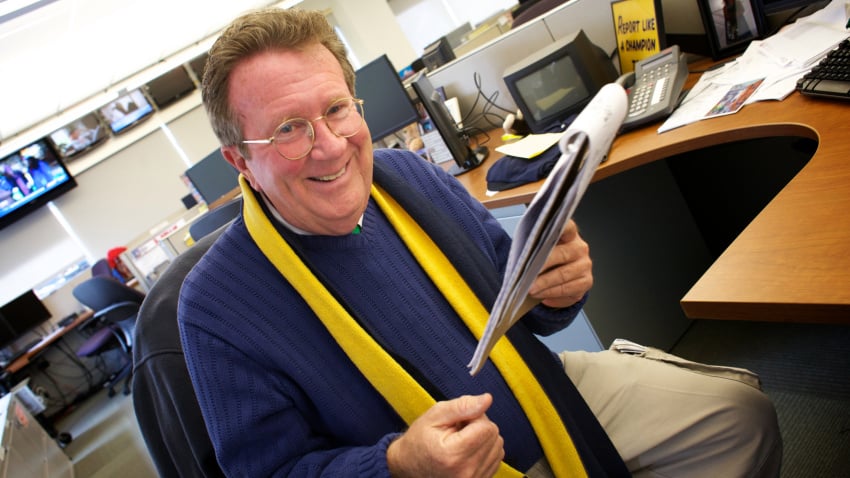Pat Collins has been covering the news on camera for more than 46 years, and he’s been a fixture on DC’s NBC station since 1986. In this excerpt from his new memoir, Newsman, Collins recalls events surrounding a huge story: the death of University of Maryland basketball star Len Bias.
“I got somethin’ you want.” That’s what he said on the phone, and those words got my attention. It was 1986. Len Bias had just died from a cocaine overdose, and I was deep into the case. It was one of those nonstop stories. The “I got somethin’ you want” caller said he had the tape of the 911 call for help made the night Bias died. He wanted to sell it—for cash.
According to the station rules—and we have a lot of rules—we cannot pay for interviews. Money can influence what people say, what they do, even how they look. Money can poison a story. But we can, and often do, buy video- and audiotapes of news events. It’s product. It stands on its own. So when I heard he had the 911 tape, I was interested—real interested. We arranged to meet.
I felt like I was doing a drug deal. I sat in my car, cash in hand, waiting to score this tape. The “I got somethin’ you want” caller showed up—with a cassette. I popped it into the tape player and listened. It was about two minutes and ten seconds long, and it was riveting. It sounded legit. Out came the money, off went the man, and back to the station went I with this valuable piece of evidence.
But just because something sounds legit doesn’t mean it’s the Real Thing. I knew a lot of people involved in the Bias case. I needed someone I could really trust—someone who had heard the 911 tape. I needed to speak with someone who wouldn’t ask any questions about how I got it.
That led to another meeting with a cop familiar with the case. This time the meet was in a shopping-center parking lot. This time in broad daylight. This time the man with knowledge sat in my car. I slipped the tape into the player and then watched as his head nodded while the tape played start to finish. I couldn’t get back to the station fast enough.
It was probably one of the shortest stories I have ever written. I was live in front of Cole Field House and simply played the 911 call made the night Len Bias died.
It was one of those moments when I felt like the whole world was watching.














